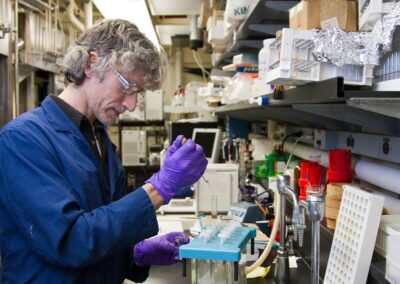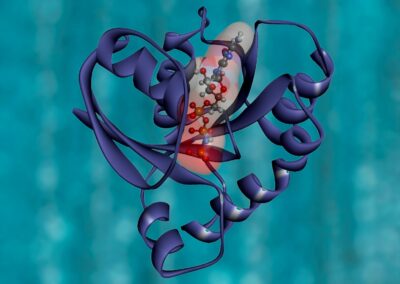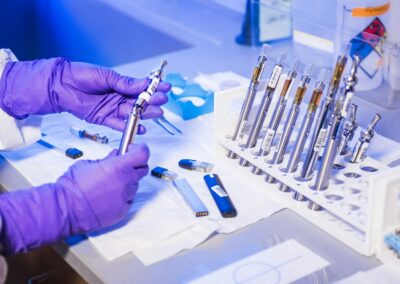Understanding the Ethical Imperatives of Genetic Augmentation
The Promise and Perils of Genetic Augmentation
The advent of genetic augmentation technologies holds great promise for revolutionizing medicine and enhancing human capabilities. These technologies, including CRISPR and other gene-editing tools, offer the potential to eradicate genetic diseases, enhance physical and cognitive abilities, and extend human longevity. However, the ethical considerations surrounding genetic augmentation are complex and multifaceted, particularly regarding informed consent.
Informed consent is a fundamental ethical requirement in medical practice and research. It ensures that individuals are fully aware of the potential risks, benefits, and implications of a medical procedure or intervention before agreeing to it. In the context of genetic augmentation, informed consent becomes even more critical due to the profound and potentially irreversible nature of genetic modifications. Ensuring that individuals understand and voluntarily agree to such interventions is essential for maintaining ethical standards.
In regions like Saudi Arabia and the UAE, where advancements in medical technology are highly valued, the implementation of genetic augmentation technologies must be approached with caution. These societies must develop robust frameworks to ensure that informed consent is obtained in a culturally sensitive and ethically sound manner. This involves not only educating patients about the scientific aspects of genetic augmentation but also addressing their ethical and religious concerns.
Challenges in Achieving True Informed Consent
Achieving true informed consent in the context of genetic augmentation technologies presents several challenges. One major challenge is the complexity of the information that needs to be conveyed to patients. Genetic augmentation involves intricate scientific concepts that may be difficult for the average person to fully grasp. Healthcare providers must find ways to effectively communicate this information in an understandable and accessible manner.
Another challenge is ensuring that consent is truly voluntary. Informed consent requires that individuals make decisions free from coercion or undue influence. However, in some cases, societal pressures, familial expectations, or economic incentives may unduly influence individuals’ decisions. For instance, parents may feel pressured to opt for genetic enhancements for their children to provide them with perceived advantages, raising ethical concerns about autonomy and consent.
Additionally, the long-term implications of genetic augmentation are still largely unknown. While the immediate benefits may be apparent, the potential risks and unintended consequences may not manifest until years or even generations later. This uncertainty complicates the informed consent process, as individuals must make decisions based on incomplete information. Ensuring that patients are aware of these uncertainties and the limitations of current knowledge is crucial for obtaining genuine informed consent.
Cultural and Ethical Considerations
Cultural and ethical considerations play a significant role in the informed consent process for genetic augmentation technologies. In societies like Saudi Arabia and the UAE, cultural and religious values heavily influence medical decision-making. Healthcare providers must be sensitive to these values and ensure that informed consent processes align with cultural and religious norms.
For example, genetic modifications that could be perceived as altering God’s creation may raise significant ethical concerns in Islamic societies. Religious leaders and ethicists should be involved in the development of informed consent frameworks to address these concerns and provide guidance to healthcare providers and patients. This collaborative approach can help build trust and acceptance of genetic augmentation technologies within these communities.
Moreover, ethical considerations such as justice and equity must be addressed. Ensuring informed consent also involves ensuring that access to genetic augmentation technologies is equitable and not limited to the wealthy or privileged. In regions like Riyadh and Dubai, where healthcare disparities exist, efforts must be made to provide all individuals with equal access to these advancements. This includes subsidizing costs and implementing policies that promote fair distribution of resources.
Strategies for Ensuring Informed Consent
Effective Communication and Education
Effective communication and education are key strategies for ensuring informed consent in genetic augmentation technologies. Healthcare providers must develop comprehensive educational materials that explain the science, risks, benefits, and ethical considerations of genetic augmentation in clear and understandable language. Visual aids, interactive tools, and personalized consultations can enhance patients’ understanding and facilitate informed decision-making.
In addition to patient education, training healthcare providers on how to effectively communicate complex genetic information is crucial. Providers should be equipped with the skills to answer patients’ questions, address their concerns, and provide balanced and unbiased information. This can help build trust and ensure that patients feel supported throughout the informed consent process.
Public awareness campaigns can also play a vital role in educating the broader community about genetic augmentation technologies. By increasing general knowledge and understanding of these advancements, communities can engage in informed discussions and contribute to the development of ethical guidelines and policies. Involving diverse stakeholders, including ethicists, scientists, policymakers, and the public, can ensure that multiple perspectives are considered and addressed.
Implementing Ethical and Regulatory Frameworks
Implementing robust ethical and regulatory frameworks is essential for ensuring informed consent in genetic augmentation technologies. These frameworks should be developed in collaboration with international organizations, such as the World Health Organization, to ensure consistency and adherence to global ethical standards. They should address issues such as autonomy, privacy, long-term implications, and the right to withdraw consent.
National regulations must be tailored to the specific cultural and societal contexts of each region. In Saudi Arabia and the UAE, inclusive policy-making processes that involve religious leaders, ethicists, and community representatives can ensure that regulations are culturally sensitive and widely accepted. These regulations should establish clear guidelines for obtaining informed consent, monitoring the use of genetic augmentation technologies, and addressing ethical breaches.
Continuous oversight and evaluation of informed consent processes are also necessary. Independent ethics committees can review cases, provide guidance, and ensure that consent procedures are followed rigorously. This oversight can help maintain ethical standards and protect the rights and well-being of individuals undergoing genetic augmentation.
Promoting Equitable Access and Inclusivity
Ensuring informed consent in genetic augmentation technologies also involves promoting equitable access and inclusivity. Efforts should be made to make these technologies accessible to all, regardless of socioeconomic status. Subsidizing the cost of genetic therapies and investing in public healthcare infrastructure can help achieve this goal. In regions like Riyadh and Dubai, leveraging public-private partnerships can enhance access to cutting-edge medical technologies.
Promoting diversity in genetic research is vital for addressing the needs of different populations. Ensuring that genetic studies include diverse ethnic groups can lead to more inclusive and effective genetic therapies. Collaborative research initiatives that involve institutions from various regions can enhance the global applicability of genetic augmentation technologies.
Furthermore, fostering international cooperation and knowledge-sharing can contribute to equitable access. By sharing best practices and resources, countries can collectively address the challenges of genetic augmentation and maximize its benefits for humanity. Global solidarity is key to overcoming limitations and ensuring that the potential of genetic augmentation is realized for the greater good.
In conclusion, ensuring informed consent in the use of genetic augmentation technologies is a complex but essential task. Addressing the technical, ethical, and societal challenges requires comprehensive strategies and collaborative efforts. By advancing effective communication, implementing ethical frameworks, and promoting equitable access, regions like Saudi Arabia, the UAE, Riyadh, and Dubai can lead the way in harnessing the potential of genetic augmentation technologies. Responsible innovation, guided by ethical principles and a commitment to the well-being of individuals and society, will be crucial in navigating the future of genetic enhancement.
—
#GeneticAugmentation #InformedConsent #Bioethics #SaudiArabia #UAE #Riyadh #Dubai #ArtificialIntelligence #Blockchain #BusinessSuccess #LeadershipSkills #ProjectManagement























